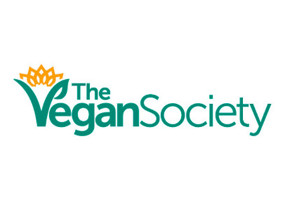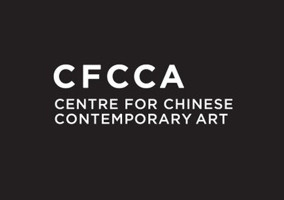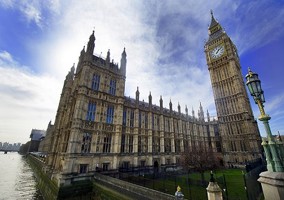Some Black and ethnic minority staff at Action Aid UK have suffered racism and feel “less valued [and] less supported” than their white colleagues, an internal review has found.
Chief executive Frances Longley apologised to staff last year and acknowledged that some employees had “suffered pain and harm” at the charity, according to documents and emails seen by Civil Society News.
The staff survey and independent audit found that people of colour at Action Aid UK (AAUK) were sometimes stereotyped and labelled as aggressive or difficult and that employees could feel “unheard, disrespected and excluded” when raising concerns. In addition Black and ethnic minority staff were “systematically” denied professional support.
The audit, conducted by independent consultants, said that these issues may have contributed to the charity struggling to recruit and retain senior staff.
An AAUK spokesperson said that the review had identified “systemic problems” at the charity and insisted that the organisation was “steadfast in our goal” of dealing with racism. Longley told staff in November that she was “profoundly sorry that this has happened at AAUK” and pledged that the charity would adopt all the recommendations made in the audit.
A human resources specialist, Nicola Peachey, joined AAUK recently and will be part of the senior leadership team working on the reforms. Some employees have criticised this process, which is being led by a senior team which does not include any Black or ethnic minority staff, emails show. AAUK said it plans to make sure the changes will be led by people of colour and lived experience.
AAUK is one of the largest international development charities in the country, with an income of nearly £50m last year.
‘Less valued, less supported, less empowered’
The race equity audit was conducted between May and September 2021, and was commissioned after a staff survey earlier in the year. The consultants drew on interviews, focus groups and written evidence from AAUK staff.
A copy was sent to the charity’s trustees in October before a summary of its findings was shared with all staff in November.
In her foreword to the summary, Longley, who joined the charity last May, said that she was acting on the findings “because colleagues who have suffered pain and harm as a result of everyday or historical systematic racism at AAUK have stepped forward to express their experiences”.
Longley said that the staff survey “painted a picture of disparities in the experiences of people from BAME [Black and ethnic minority] backgrounds (mostly people of colour), compared to their majority white colleagues across a number of parameters that define a good anti-racist climate.
“Figures show that staff from BAME backgrounds at AAUK feel less valued, less supported, less empowered, less fairly-utilised, with less [sic] perceived opportunities to fulfil their career aspirations at AAUK compared to their white counterparts”.
‘Labelled as difficult or emotional’
The summary said that the audit “identifies shared experiences of sweeping stereotypical statements and actions towards people of colour that are then explained away, ignored or denied with the common phrase ‘They didn’t mean it that way’”.
The audit also found examples of “microaggressions including the stereotyping of colleagues who identify as people of colour or who are within the BAME community as being overly aggressive”.
There were “incidents where women of colour’s opinions were dismissed or labelled as difficult or emotional in leadership settings, when compared to what appeared to be allowed for white women in the organisation at a similar level,” the audit said.
In other cases, employees “felt they had been treated as representatives of their race rather than as individuals”. Requests for professional support and resources “were systematically ignored when made by people of colour”, it added.
At the same time, the consultants also found that “among some white members of staff there is a perception that people of colour are somewhat ‘protected’ in the organisation and therefore have some sort of ‘structural advantage’.”
Raising concerns
When staff raised concerns they were sometimes confronted with a “failure to recognise, value and take on board feedback on people of colour’s negative experiences”, the summary said. The audit “noted that such inaction can leave colleagues feeling unheard, disrespected and excluded”.
It added: “At times there had been systematic denial, disbelief or indifference that racist experiences have been encountered at AAUK.”
Uncomfortable
In her foreword to the audit summary, Longley thanked staff for “courage” in coming forward and described the findings as “an uncomfortable and sometimes painful read”. She said that the charity would “use this moment as a catalyst for change, starting now”.
In a later email, Longley acknowledged concerns among some staff that work to implement the recommendations would be led by an all-white senior leadership team, and said that it needed to be “centred in lived experience and racial justice expertise” if it was to succeed.
‘We will not tolerate any form of racism at ActionAid UK’
In a statement, an AAUK spokesperson said: “Following the long overdue focus on and awareness of institutional racism globally over the past 20 months, and recognising the colonial legacy of the sector in which we operate, AAUK commissioned an internal independent race audit to help gain a better understanding of the prevalence of institutional racism and racist behaviour within AAUK.
“We wanted to acknowledge, address and evaluate the experiences of UK colleagues who identify as members of the BAME community or who identify as people of colour.”
The statement continued: “The audit sheds light on injustices experienced by some colleagues and identifies systemic problems within the organisation that may have led to unacceptable behaviours, fostered a climate of impunity amongst some staff, and prevented equity in the workplace for all colleagues. The hurt identified was and is totally unacceptable and we are profoundly sorry that this has happened at AAUK.
“We will not tolerate any form of racism at AAUK. To do this, each of us must work hard to understand the consequences of our decisions, statements and actions each day. We are steadfast in our goal of addressing any historical racism and failings which may have enabled injustices within AAUK.
“We will, now and in the future, work hard to become an actively anti-racist organisation that is committed to social justice, equity and securing each person’s right to dignity and respect in the workplace, free of discrimination every day.”
In response to a question about retaining and recruiting staff, the charity said that it had accepted the audit’s findings and recommendations, “including implementing a recruitment process review and refining colleague development and progression processes. These are first steps and we will continue to develop them in consultation with AAUK colleagues”.
The audit also identified “a number of good practice areas” in the charity's existing anti-racism work. The proportion of Black and ethnic minority staff working at AAUK is higher than the sector average.
Reforms
AAUK said that budget had been allocated to reforming the organisation based on the audit’s recommendations, with quarterly updates sent to trustees.
The charity said: “To be very clear: we will not tolerate any form of racism at AAUK”, and added: “This important shift in the way we work in the UK will allow us to continue to decolonise our approach to our day-to-day activity, campaigns, and programmes, build a stronger work environment of equal opportunities for all, and as a result truly be able to stand in solidarity with women and girls, whose rights and freedom we are dedicated to secure and protect.”
Editor's note, 3.45pm 14 January 2022: This article was updated to better reflect changes to AAUK's senior management team and the charity's plans for reform
Related articles












